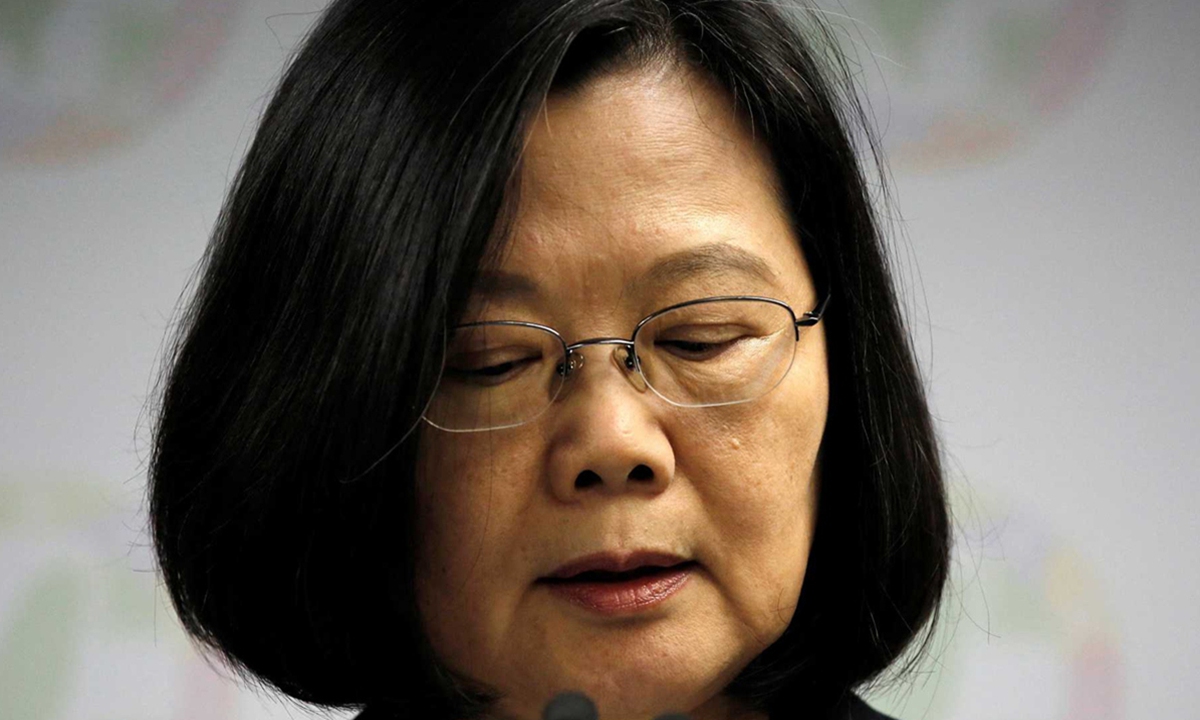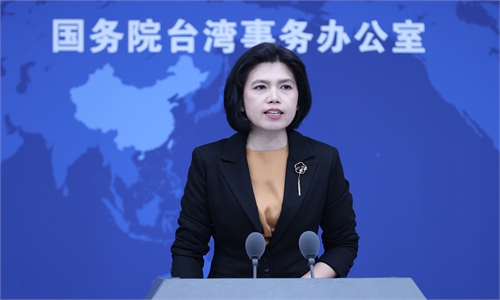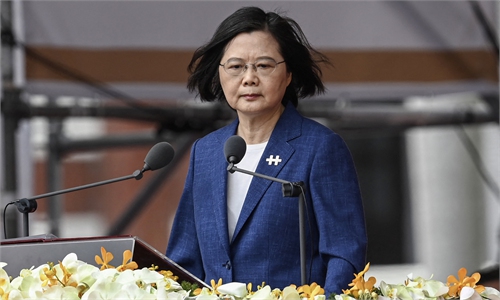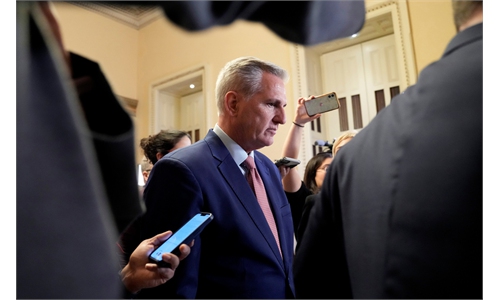
Tsai Ing-wen Photo:VCG
Taiwan regional leader Tsai Ing-wen kicked off a trip on Wednesday, claiming she is heading to Guatemala and Belize in Central America. However, it is clear to everyone that the centerpiece of the trip would be "transiting through" the US. This is a trick she had played six times previously, and with her term soon ending, she appears to want to make one more last big play before the end of her political career. However, the public protests that "opposed the sale of Taiwan to the US and the collusion between the US and Taiwan which will harm the island," have reminded Tsai that this visit will only leave her with a "historical position" of being a disgraced descendant.
On the path of seeking independence with US support, Tsai and the Democratic Progressive Party (DPP) authorities have behaved like desperate gamblers who have lost their senses. However, the problem is that the stakes they are gambling with are not just their own private assets or those of their party, but the livelihood and wellbeing of the people in Taiwan and even the fate of the island. An atmosphere of worries is permeating the island's media, which is fearful of what kind of new instructions Tsai will bring back from her American boss. The island's media described the trip as "strapping a bomb to Taiwan itself and pouring gasoline on itself," which shows that this is a risky and ominous trip.
According to Taiwan media reports, the DPP had hoped to achieve a "major breakthrough" and even "seek a historical position" through Tsai's US transit. However, Washington "intentionally downplayed the visit," making it rather bland. For the US, it wants to turn the regional leader's transit into a card against China, but is also concerned that it might become a hand grenade that cannot be thrown out if things go too far. The DPP authorities are in such a predicament. It is merely a pawn on the US chessboard, and Washington decides where to place it based on its own geopolitical needs.
Until Tsai's departure, neither the DPP authorities nor the US side officially announced her specific itinerary, and all kinds of information were tentatively released via media. It can be seen that both Tsai and the DPP authorities, and even the US side, are wary and know that some things cannot be exposed publicly as they violate the rules. However, they cannot let go of their desire to do those bad things, so they appear to be sneaky and secretive. The White House claimed that Tsai's "transit" was of a private nature and that there were no arrangements for US officials to meet with her. We will wait and see if there will be a slap in the face on these claims.
The Chinese side has already made solemn representations to the US side on this issue several times. If Tsai has contact with US House Speaker Kevin McCarthy, it will be another serious violation of the one-China principle and damage to China's sovereignty and territorial integrity, as well as a provocation that undermines peace and stability across the Taiwan Straits. We firmly oppose to it and will take resolute countermeasures. The form and degree of the counterattack will depend on the specific circumstances, and the initiative is in our own hands. However, the final outcome will undoubtedly be that every provocation by Washington will be met with the Chinese side's resolute countermeasures, and every act of "Taiwan independence" by Tsai and the DPP authorities will result in tighter constraints on them.
There is one thing that can be told to Tsai in advance: When she returns after transiting through the US, she will definitely find a more difficult situation. What awaits her is not only the accurate countermeasures from the mainland but also the increasing vigilance and opposition from the residents within the island against her pursuit of independence with US support. She will also face a complete disdain toward her political manipulation while ignoring the livelihood and wellbeing of the people on the island.
It's clear that the mainstream public on the island hopes for peaceful relations across the Straits, and there is deep concern about the tendency of the DPP authorities to trample on the red line and cause tensions to escalate or even start a conflict. As patriotic compatriots on both sides of the Straits are making the greatest effort to realize peaceful reunification, the "Taiwan independence" movement is becoming increasingly unpopular on the island. An increasing number of people on the island realize that reunification is beneficial, "Taiwan independence" is a dead end, and the US is unreliable.
Against the backdrop of increasingly tense China-US relations, the DPP authorities think they see an opportunity to seek private political interests, which is their biggest misjudgment. Prior to Tsai's US transit, former US National Security Advisor Robert O'Brien said he believes a Taiwan with 1 million AK47-armed citizens on "every corner and in every apartment block" would be a fearful deterrent to the mainland during his visit to Taiwan. Such frantic remarks confirm that the so-called "porcupine strategy" of the US to arm the Taiwan island is essentially a "strategy of destroying Taiwan." For the over 23 million Taiwan compatriots, it has come to a critical moment when they must keep their eyes open.



